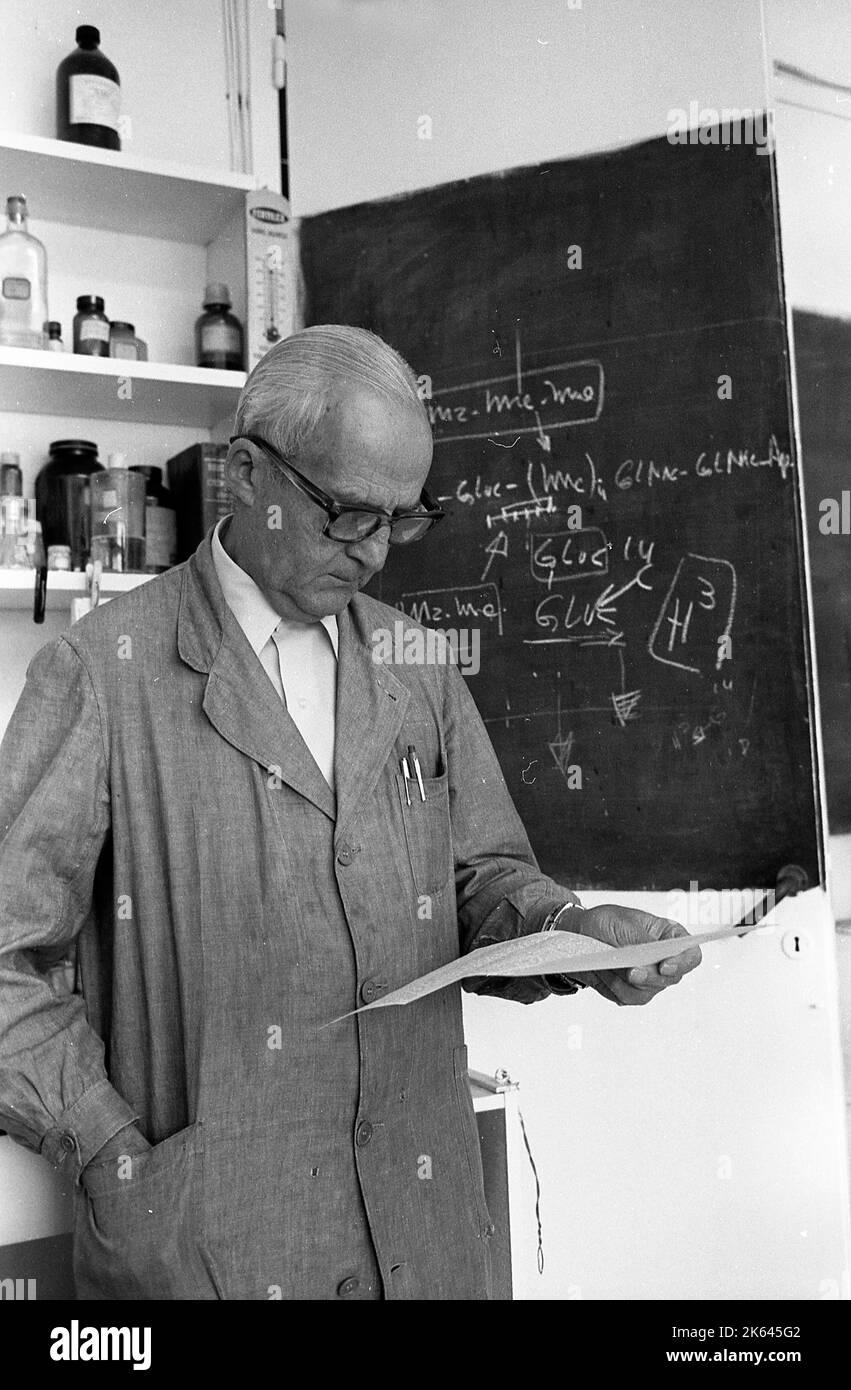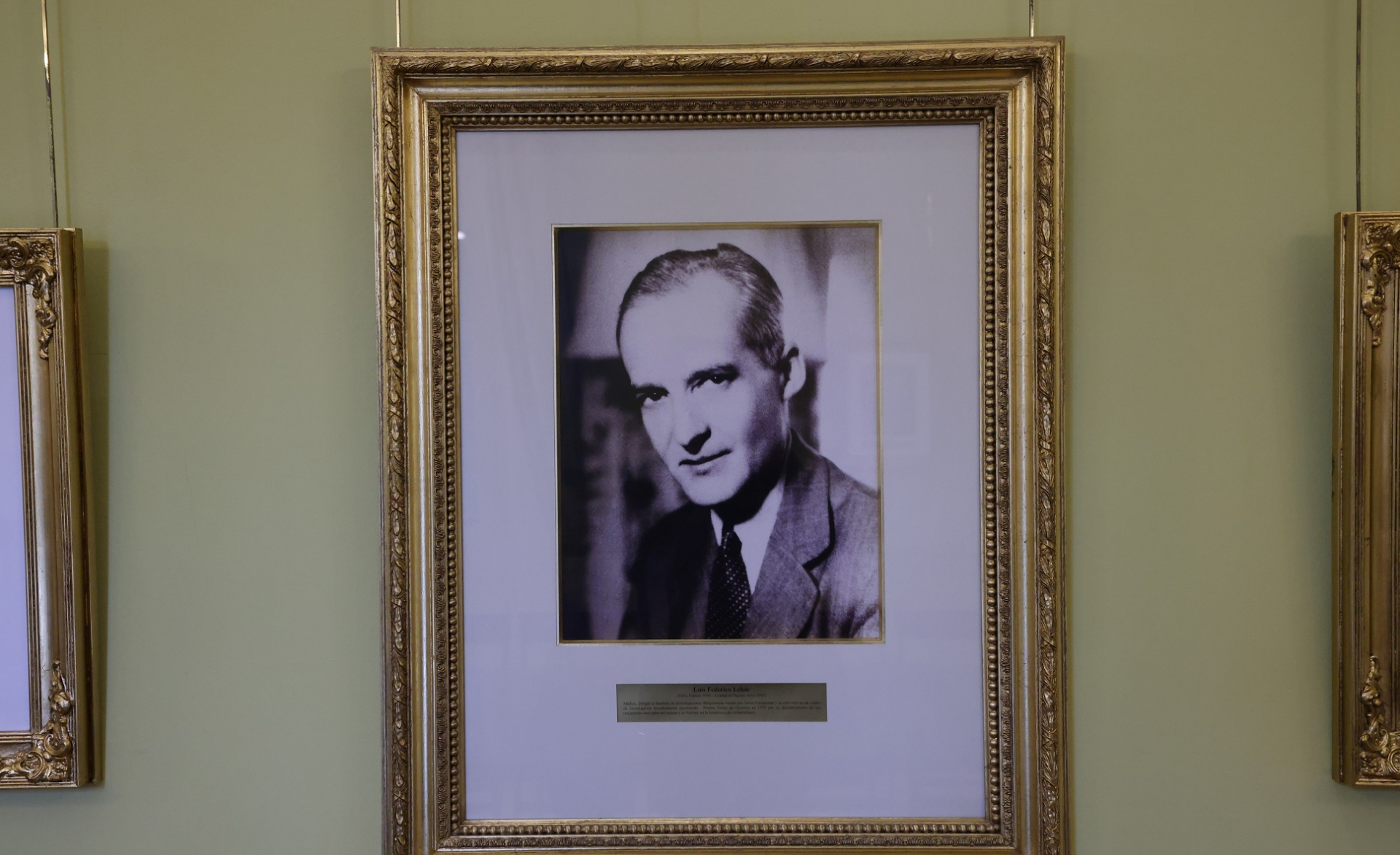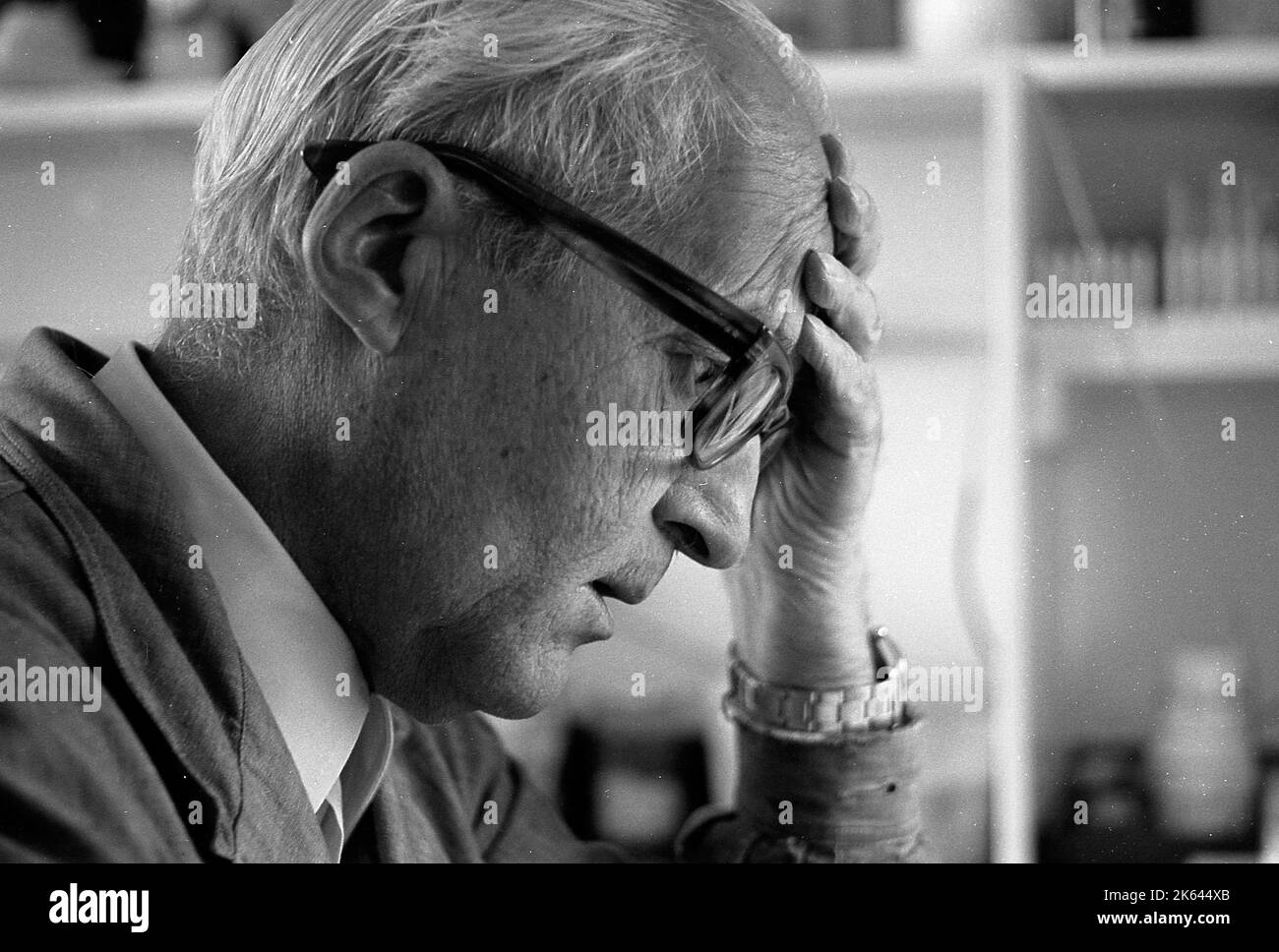
Have you ever paused to consider the intricate process by which our bodies transform the food we consume into the energy that fuels our daily activities? This fascinating transformation is not merely a simple task; it involves a series of complex biochemical reactions. Thanks to the pioneering research conducted by the esteemed Argentine biochemist, **Luis Federico Leloir**, we now possess a much more profound understanding of this essential process. In this article, we will explore the life and career of Leloir, highlighting his significant contributions to biochemistry and the lasting influence of his work on the scientific community and beyond. Join us as we delve into the remarkable achievements of this extraordinary individual and the legacy he has left behind in the field of science.
Early Life and Education

Born in Paris
Luis Federico Leloir entered the world on September 6, 1906, in the vibrant city of Paris, France. His early years were spent in this cultural hub, but when he was still a young child, his family made the significant decision to relocate to Argentina. This move would prove to be pivotal, as it was in Argentina that Leloir would eventually carve out a distinguished career in the field of science, gaining recognition for his groundbreaking contributions.
Academic Pursuits
Following the completion of his initial education, Leloir took a significant step in his academic journey by enrolling at the prestigious University of Buenos Aires. Initially, he pursued a degree in medicine, which was a common path for many aspiring scientists of his time. However, as he delved deeper into his studies, he discovered a profound interest in the field of biochemistry. This newfound passion led him to take on the role of an assistant at the Institute of Physiology, where he began to immerse himself in research and experimentation, laying the groundwork for his future achievements in biochemistry and molecular biology.
Career Beginnings

First Steps in Research
Between the years of 1934 and 1935, Leloir embarked on his scientific journey as an assistant at the Institute of Physiology. During this formative period, his insatiable curiosity and unwavering dedication to unraveling the complexities of biochemical processes became evident. This passion for research propelled him to the prestigious University of Cambridge, where he spent a year refining his research skills and expanding his knowledge base. The experience he gained during this time was invaluable, equipping him with the tools necessary to tackle the intricate challenges that lay ahead in his scientific career.
Return to Argentina
In 1937, Leloir made the significant decision to return to Argentina, rejoining the Institute of Physiology in Buenos Aires. It was here that he initiated a groundbreaking investigation into the oxidation of fatty acids, a topic that would lay the groundwork for much of his future research. This marked the beginning of an illustrious career characterized by innovative discoveries and contributions to the field of biochemistry, setting the stage for Leloir to become a prominent figure in scientific circles both in Argentina and internationally.
Establishing the Institute for Biochemical Research

A Vision for Research
In the year 1947, the renowned scientist Leloir received crucial financial backing that enabled him to establish the Institute for Biochemical Research in Buenos Aires. This significant development marked a transformative phase in his professional journey, as it provided him with the resources and environment necessary to dedicate himself fully to innovative and groundbreaking research. The establishment of the institute not only facilitated his work but also contributed to the advancement of biochemical studies in Argentina, fostering a new generation of scientists and researchers in the field.
Research on Lactose
Once the Institute was up and running, Leloir turned his attention to the intricate processes surrounding the formation and breakdown of lactose, commonly known as milk sugar, within the human body. His meticulous research in this area was not merely academic; it was a quest to unravel the complexities of carbohydrate metabolism. Through his investigations, Leloir made significant strides that ultimately led to the groundbreaking discovery of sugar nucleotides, a finding that would have profound implications for biochemistry and our understanding of cellular processes. His work laid the foundation for future research and opened new avenues for exploration in the field of biochemical science.
The Discovery of Sugar Nucleotides

What Are Sugar Nucleotides?
So, what exactly are sugar nucleotides? These are essential molecules that play a crucial role in the conversion of stored sugars into energy. Leloir’s discovery was a game-changer in biochemistry.
Impact on Energy Conversion
Understanding sugar nucleotides helped scientists grasp how carbohydrates are metabolized in the body. This knowledge has implications for everything from nutrition to disease treatment.
Further Research and Discoveries

Glycogen Formation
Leloir didn’t stop at sugar nucleotides. He also investigated the formation and utilization of glycogen, a stored form of glucose in the body. His work revealed the intricate processes involved in glycogen synthesis.
Enzymatic Discoveries
During his research, Leloir discovered specific liver enzymes that are crucial for synthesizing glycogen from glucose. These findings opened new avenues for understanding metabolic disorders.
A Nobel Prize Winner

Recognition of His Work
In 1970, Leloir was awarded the Nobel Prize for Chemistry for his pioneering research on sugar nucleotides and their role in carbohydrate metabolism. This prestigious award solidified his status as a leading figure in biochemistry.
Legacy of Innovation
Leloir’s contributions to science extend beyond his discoveries. His work has inspired countless researchers and has laid the groundwork for advancements in nutrition and metabolic health.
Personal Life and Values

A Humble Scientist
Despite his monumental achievements, Leloir remained a humble individual. He believed in the importance of collaboration and often emphasized the role of teamwork in scientific research.
Passion for Education
Leloir was also dedicated to education. He mentored many young scientists, sharing his knowledge and passion for biochemistry. His influence continues to be felt in academic circles today.

The life of Luis Federico Leloir is a testament to the power of curiosity and dedication. His groundbreaking research on carbohydrates and energy conversion has had a lasting impact on the field of biochemistry. As we continue to explore the complexities of human metabolism, we owe a debt of gratitude to Leloir for paving the way.
Table: Key Achievements of Luis Federico Leloir

| Year | Achievement |
|---|---|
| 1906 | Born in Paris, France |
| 1934-1935 | Assistant at the Institute of Physiology, University of Buenos Aires |
| 1947 | Established the Institute for Biochemical Research, Buenos Aires |
| 1970 | Awarded the Nobel Prize for Chemistry |

